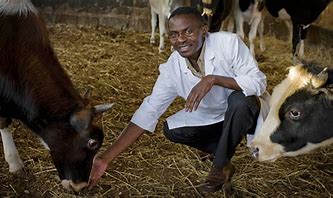
Insufficient funding and untimely disbursement of the same for livestock disease management is making it difficult for Kenya to access lucrative international markets for livestock and livestock products.
Markets such as the United States of America, the European Union, the United Kingdom and South Africa have not been accessible to Kenyan livestock products, as livestock disease management is not adequately addressed owing to medium-term expenditure framework (MTEF), which has not been providing adequate and timely funding over the years.
The introduction of the Veterinary Services Development Fund (VSDF) is therefore critical for the State Department for Livestock Development to realise improved delivery of national veterinary services.
According to the draft VSDF regulation 2024, the purpose of the fund is to provide for the development and delivery of veterinary services that include the protection of animal health, ensure adequate supply of good quality and safe food of animal origin, safeguarding public health and protecting consumers from food-related health risks.
The draft regulations presented before veterinary stakeholders during a public participation exercise at an Eldoret hotel in Uasin Gishu County provides that the fund will facilitate domestic and international trade in animals, animal products and animal by-products as well as ensure an adequate supply of good quality and safe food of animal origin, and promote animal production.
However, the full potential of the Fund established and gazetted in 1996, has not been realized due to a myriad of challenges including weak coordination between the directorate of veterinary services (DVS) and county governments on the delivery of veterinary services, inadequate implementation of veterinary policies and programmes leading to disruption of animal disease control.
Other challenges include the spread of transboundary animal diseases, violation of animal welfare, increased slaughter in the bush and insufficient meat inspection services that contribute to a high risk of exposure to zoonoses and food-borne illnesses and skewed distribution of veterinary services with low provision of the services in the arid and semi-arid areas.
Despite the promulgation of the 2010 Constitution that transferred a majority of veterinary services to the counties, the legal instrument that established the fund remains unchanged.
To align the VSDF to the current realities and sustain the gains already made it is imperative to review the legal instruments to ensure there is a collaboration between the national and county governments in the provision of veterinary services.
An officer in the State Department for Livestock Services, Directorate of Livestock Policy William Kumbi and another Philemon Koskei from the directorate of veterinary services who presided over the public participation exercise assured that views from the public will be taken into consideration before the final regulations are made.
Dr Kumbi said the fund will also support the capacity building for the county governments so that the country meets the sanitary requirements necessary for internal and external trade in animals, animal products and animal by-products, supporting animal disease surveillance and diagnosis, ensuring the safety of foods of animal origin and improving capacity for provision of quality national veterinary services.
He said it was essential to build the capacity of the counties to ensure that products from livestock farmers are of high quality and meet specific international standards to access foreign markets.
“There is a huge market for milk and meat in the Middle East currently that we cannot satisfy, hence the need to encourage counties to enhance production of livestock that meet specific criteria standards for the international markets,” he added.
- A Tell Media / KNA report / By Kiptanui Cherono







